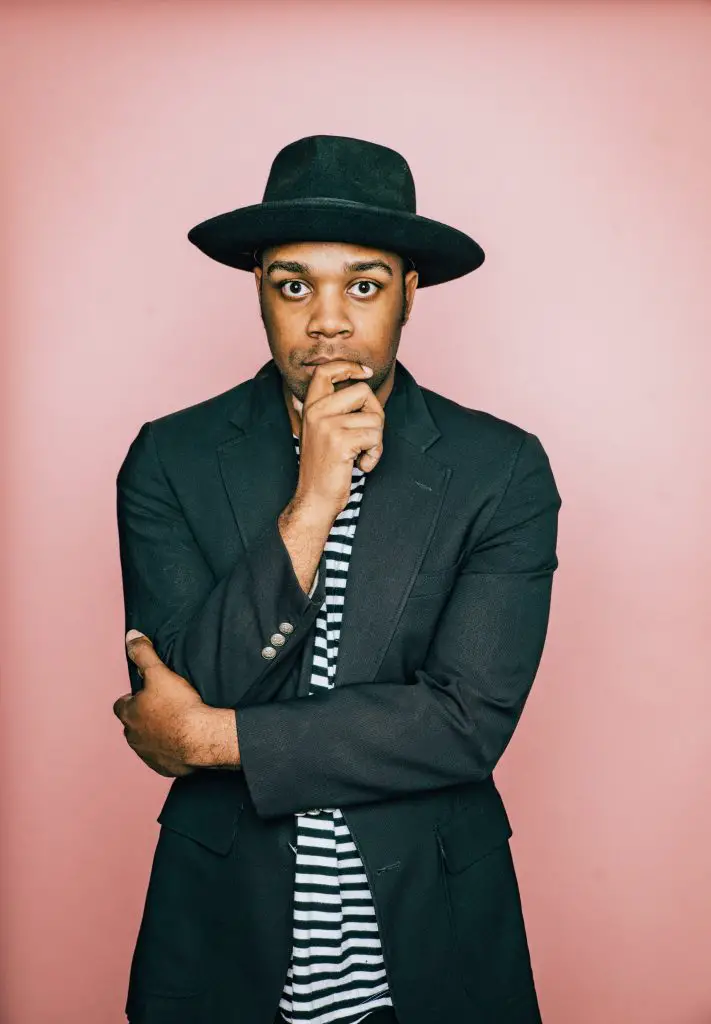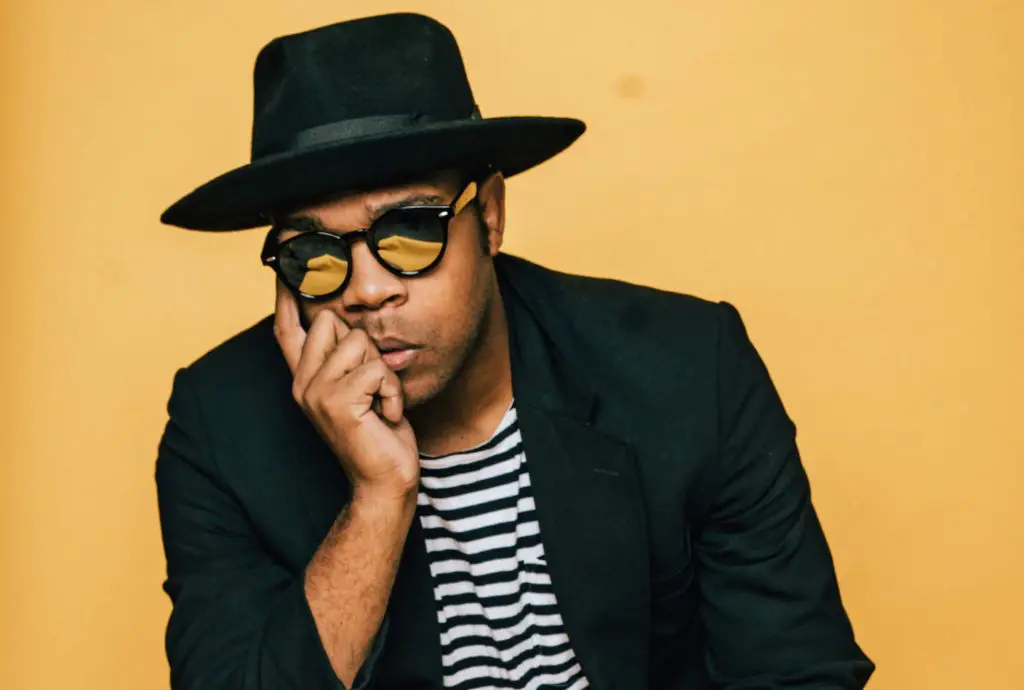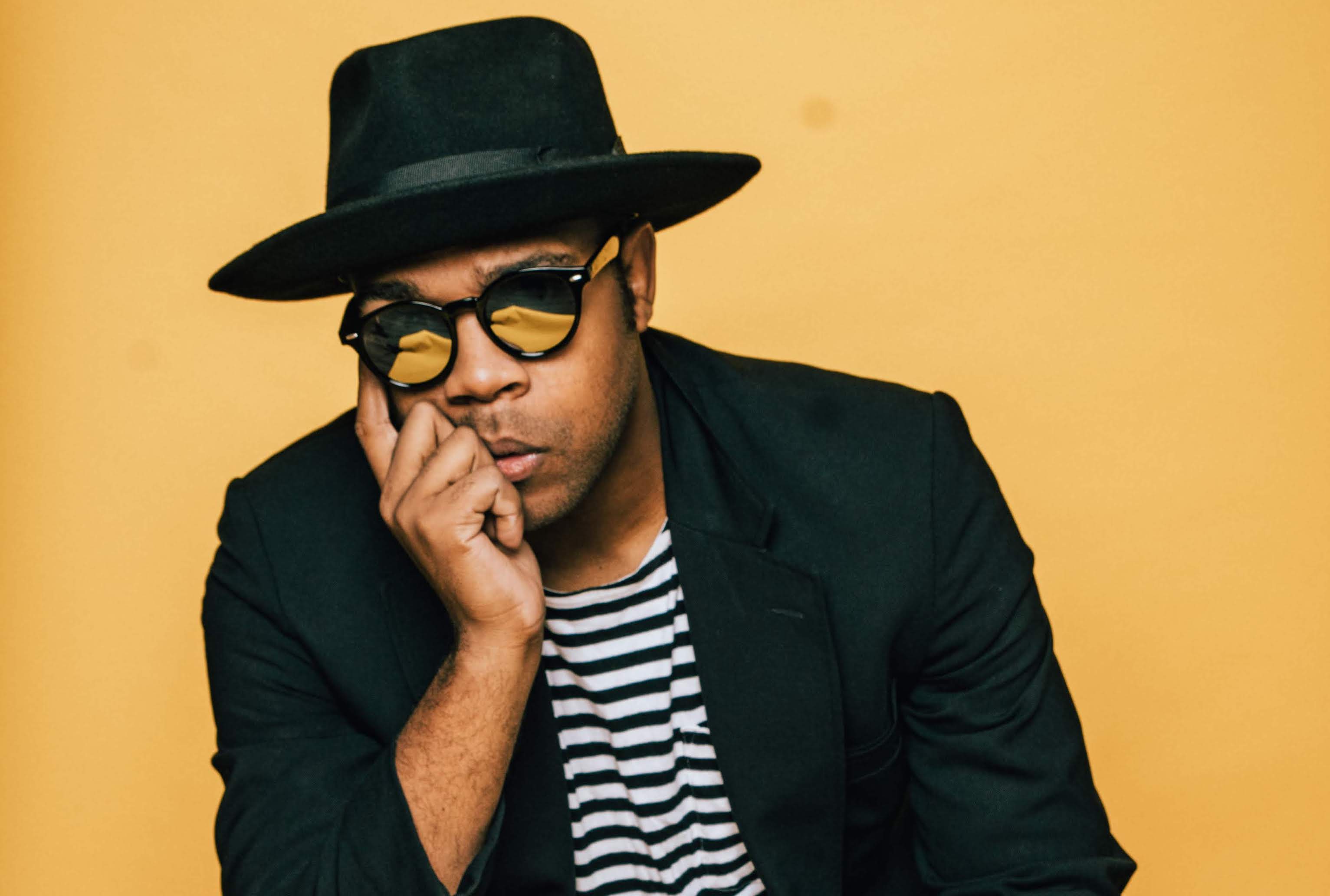Originality doesn’t exist in modern music — or at least, it can appear that way sometimes.
With trap-centric pop songs and overly glitzy summer anthems contaminating mainstream radio, from the outside looking in, the music industry seems intent on repackaging and recycling the same trends and spewing them out for mass consumption with little consideration for quality.
Furthermore, as a listener you’re also forced to contend with internet celebrities who chose to pursue a musical career after a publicity stunt on a daytime TV show — yes, I’m referring to Danielle “Cash Me Outside” Bregoli — or the never-ending, progressively bothersome wave of SoundCloud rappers, though neither party seems to possess an inkling of long-standing talent or innovation.
In 2018, listeners thrive on immediacy, a reality that causes chart-toppers and popular artists to disappear as quickly as they arrive. Taking all these factors into account, it’s safe to say that musicians exist in an unforgiving environment. If you’re lucky enough to get noticed based solely on your talents, your chances at remaining relevant seem slim to none, and it’s only a matter of time before your career vanishes into the wind of yesteryear.
Mobley, though, doesn’t much seem to mind. For him, creating music isn’t a means to gain recognition, but rather a method of personal expression that just so happens to function as a career. Despite gaining a notable following — the majority of the musician’s songs on SoundCloud exceed 500,000 listens — notoriety seems to be an afterthought for the burgeoning star.
Although Mobley is far from secretive, the musician’s reserved nature and humble perspective on his craft provide an intriguing contrast to his colorful, constantly evolving output, as evidenced by his debut project, “Fresh Lies Vol. 1.” It’s difficult to select one factor that sets him apart from his contemporaries, though his self-described “post-genre pop” certainly speaks for itself. From the earworm chorus of “Tell Me” to the pitch-shifted vocals laced throughout “Hound the World,” the artist’s flair for merging eccentric experimentation and sharp songwriting into unforgettable tunes leaves an impression.
Most of all, “Fresh Lies Vol. 1” feels original. Over the course of the project’s 10-track duration, Mobley proves that he’s an artist that deserves your attention. I sat down with up-and-coming musician to discuss his debut album, weird fan interactions and the difficulties of being an artist in the internet age.

Jonathan Christian: What’s your least favorite question to answer in an interview?
MOBLEY: That’s a really long list. In a general sense, I would say any question that reveals that the interviewer doesn’t really know who they’re talking to or really doesn’t care who they’re talking to. Or, any question that’s super generic like, “How did you get started in music?” or “How would you describe your music?” They can be fine in a certain context, but if it’s the very first thing they ask, that’s annoying.
JC: Does music run in your family?
M: No, my immediate family is not particularly musical. No one other than myself really plays any instruments — certainly not very seriously. I did have an aunt who was a professional musician for a while. She had a touring gospel choir.
JC: What type of kid were you in high school?
M: Probably a little jerk. I was a shy kid, but I was what you would call an overachiever. I was class president, valedictorian and played three sports. A weird mix I guess, but I kept to myself mostly.
JC: Has music always been your form of expressing yourself?
M: It definitely came later. I’d planned to be a lawyer and thought I’d go into politics. I wrote my first real song the summer after high school, and ever since then, that’s basically all I’ve been doing. It kind of turned into a career on its own.
JC: What was your breakthrough into the industry?
M: I’m still waiting for that moment in a certain sense. I’ve been a professional musician, in that I’ve made a living doing music exclusively, for close to three years. So I guess, by a lot of metrics, that would be “making it.” However, how long you can sustain that, or whether that turns into a 20-year career, is a different question. But, I definitely appreciate it.
There have obviously been a lot of little milestones before and since then. My first headline gig or first sold-out show, playing [Austin City Limits] or playing Lollapalooza this year, are all really exciting. I’m not convinced that there will ever be one clear moment where it’s like, “I’ve made it.” It seems like it happens more gradually than that.
JC: Have you had any weird fan interactions yet?
M: Oh my gosh. Yes. My wildest fan story happened during South by Southwest one year. Some fans apparently convinced my roommates at the time that they were friends of mine. I don’t know how they found out where I lived, but my roommates let them in. They took a shower in my bathroom and rummaged around my bedroom. I don’t know what else they did, but that was pretty weird.
I guess that was kind of an “I’ve made it” moment. I’ve taken security more seriously since then because there was no reason for me to expect that anyone would every do anything like that.
JC: What’s the meaning behind the name Mobley?
M: I’ve pulled a lot of different lies about the meaning. I guess I mostly just like the way it looks and sounds.
JC: What made you decide on “Fresh Lies” for the title of your debut?
M: “Fresh Lies,” as a phrase, was a result of me looking around at the world and noticing lots of lies, deception and narratives that were being put forward are really just a reframing of old narratives we pretend that we’ve evolved past and matured beyond. So, “Fresh Lies” is an allusion to the type of cyclical nature of a lot of the rhetoric in [America] and the tactics that people in power will deploy to hold onto it.
JC: I’ve noticed a lot of your music seems to derive from personal experiences. Do you make music for yourself or in response to what you see around you?
M: I would say both. It really feels like one thing. I’m a strong believer in the feminist idea that the personal is political. If I’m feeling particularly sad, happy or angry, it’s hard to separate that from the fact that I’m part of a larger system that impacts me, that I contribute to or resist. It’s an internal reaction to the world around me as I experience it.
JC: The majority of your songs, especially on “Fresh Lies,” meld catchiness with slightly experimental elements. Is that a sound you actively try to achieve?
M: I think it’s part of my voice as a producer and a songwriter. I really love catchy, melodic music, but I also really enjoy music that pushes you to expand the way that you think about music or what’s aesthetically pleasing. I like to give people lots of sonic surprises in my music. I think it’s a combination of being obsessed with catchy songwriting and forward-thinking production.
JC: Do you approach making songs from a melodic or songwriting standpoint?
M: Recently, the most common way is for the song to come together all at once. I’ll hear a sound in my head and it’ll be a lyric with a melody, or it could be a drum beat. Then I’ll make decisions like, I want the drums to be super compressed, a really long reverb on the piano, or a certain distortion on the guitar and I want the vocals to be processed in a particular way.
As of late, songs are coming to me fully fleshed out or with a strong sense of what the road map is. It’s a holistic process. I make all my records at home. My studio’s always set up in the same way, so when I start a demo, I’m really starting the final version of the record.
JC: Is there a certain timeframe you dedicate to a song that determines whether you release it or not?
M: I wish I could release everything as I finish it. That would be the most exciting and fun way to do it. But, especially now, music has such a short self-life with a lot of people. They’ll listen to something briefly and move on to the new thing.
You have to be careful with what you release. I’ll put weeks or months into making a song and then when it’s out, it’s gone. I just try to be strategic, and sometimes that means putting something out after a few weeks or a few years.

JC: What is the greatest struggle you’ve faced being a musician in the age of the internet?
M: It’s definitely hard to get people’s attention. I believe that once you have people’s attention, it’s just as easy or hard to stand out and convince them that you still have something compelling to say that’s worth their time. But, getting their attention in the first place is definitely difficult.
The means of production has become so cheap that the barriers to entry are basically nothing for most middle-class people. Anyone can make a record. Anyone can release a record. In most places in the country, anyone can book a show. On top of that, you’re not just competing with other music, you’re competing with streaming video services, gaming consoles and the endless amount of entertainment options at people’s disposal.
People talk a lot about how [record labels] are dead, and how you don’t need them anymore. There might be some truth in that, but there’s still no replacement for having access to mass media. I think when you can guarantee thousands of people will see or hear something, that’s something the average person in their bedroom can’t compete with unless they get really lucky, and that’s like buying a lottery ticket. You don’t set up a business plan around a lottery ticket.
JC: Considering all those factors, what keeps you motivated to keep making music?
M: I would be doing this no matter what. I’m pretty obsessed with making music and I need a job, so I might as well be doing something that I enjoy doing or that I feel called to do. It can definitely be discouraging at times, but it can also be really rewarding.
I got an email earlier today from somebody I’ve never met. She said she heard my last single and the words she used were, “It changed my life.” She said she fell to her knees and started crying. It’s incredible to hear that. There aren’t a lot of jobs I’m qualified for where I would get that kind of reaction to my work, so experiences like that are definitely encouraging.
JC: Are there any artists you’ve always wanted to collaborate with?
M: I can name lots of people who I think I could make cool records with. But if somebody said, “Pick two artists and they’ll be waiting for you in the studio when you get home,” I’d probably say Rihanna and Kevin Parker from Tame Impala.
JC: Do you strive to be on that mainstream level?
M: I honestly just want job security. I’m from a working-class background and I feel like I take that approach with being a musician. I definitely don’t have any desire to be famous in a personal way. I’d love for my music to be well known, and if that means Mobley is a big name, that’s cool.
But, at the same time, there are lots of musicians that I know where you could go all over the country and ask if anyone in a particular room has heard them and virtually no one will ever say yes. But, those musicians are making a comfortable living making music because they have a core fanbase and they’ll be fine doing that for the rest of their lives.
I really just want artistic freedom. Whatever path leads to that in the best way, that’s the path I’m interested in following. That said, obviously, playing to huge crowds is really fun so I’m all about that.
JC: Do you have any projects in the works?
M: Right now, we’re just focusing on promoting “Fresh Lies” and the song “Swoon” in particular. But, I’m always writing. I’d say that I’m probably 75 percent finished with the next record.
JC: If there’s one takeaway you want for listeners, what would it be?
M: I definitely want people to be inspired. I don’t know exactly how I want them to be inspired, but if music is uninspiring — if it’s not captivating, it feels like waste. I hope people are walking away feeling energized, compelled and inspired from what they just heard or saw.
Mobley’s debut “Fresh Lies” is available for streaming on Apple Music, Spotify and SoundCloud and purchase on iTunes, Amazon and Bandcamp.
Follow Mobley on Twitter: @mobleywho

















